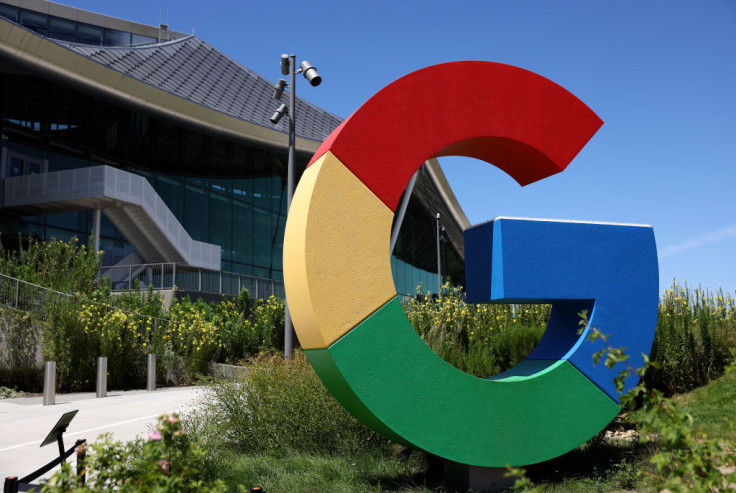DOJ's Proposed Google Changes: A Threat To User Trust?

Table of Contents
The Department of Justice (DOJ) has proposed sweeping changes to Google's business model, sparking a debate about the future of online search and advertising. While the DOJ aims to increase competition and potentially benefit consumers, concerns remain that these proposed changes could inadvertently harm user trust and the overall user experience. This article examines the DOJ's proposals, weighing their potential positive and negative impacts on user trust and the broader digital landscape. We'll analyze the key arguments for and against these changes, exploring their long-term implications for Google and its users.
The DOJ's Core Concerns and Proposed Solutions
The DOJ's antitrust concerns center on Google's dominant market position in search, advertising, and other digital markets. They argue that Google has engaged in anti-competitive practices to maintain its stronghold, stifling innovation and harming consumers.
- Google's alleged anti-competitive practices related to search engine dominance: The DOJ alleges that Google uses its dominance in search to favor its own products and services, disadvantaging competitors. This includes preferential placement of Google's own services in search results, a practice known as "self-preferencing."
- Concerns about Google's control over advertising technologies and their impact on competition: Google's control over a significant portion of the digital advertising market raises concerns about its ability to manipulate ad prices and limit competition among advertisers. This includes its control of AdSense and AdWords, key players in online advertising.
- Specific examples of DOJ proposed solutions, e.g., structural separation of Google's businesses: The DOJ has proposed various solutions, including the potential structural separation of Google's search engine from its other businesses, such as advertising and Android. This aims to level the playing field and foster greater competition.
- Mention potential fines and other penalties: Beyond structural changes, the DOJ may impose significant fines and other penalties on Google if found guilty of anti-competitive practices. These penalties could significantly impact Google's financial performance and its ability to operate as it currently does.
Potential Positive Impacts on User Trust (Increased Competition)
Increased competition, a potential outcome of the DOJ's proposals, could bring several benefits for users:
- Improved search engine algorithms due to increased competition: A more competitive market could lead to innovation in search algorithms, potentially resulting in more relevant and accurate search results for users. New entrants might offer unique approaches to search, improving the overall quality of search experiences.
- More choices and innovation in search technology and advertising: Increased competition could lead to a wider variety of search engines and advertising platforms, offering consumers more choices and potentially more innovative products and services. This could increase user satisfaction and allow for personalized experiences beyond what is currently offered.
- Potential for lower advertising costs for businesses and consumers: Increased competition in the advertising market could drive down prices, benefiting both businesses and consumers. This would translate into potentially lower costs for products and services.
- Greater transparency and accountability in the digital advertising ecosystem: The DOJ's actions aim to increase transparency and accountability within the digital advertising industry, making it more difficult for companies like Google to engage in opaque and potentially manipulative practices.
Potential Negative Impacts on User Trust (Fragmentation and Degradation of Services)
Despite the potential benefits, the DOJ's proposals also carry risks:
- Potential for a less seamless user experience across Google's services: If Google is forced to restructure, the seamless integration of its various services (search, maps, email, etc.) could be disrupted, leading to a less user-friendly experience. Users might find navigating the digital landscape more complicated.
- Concerns about data privacy and security implications of a more fragmented ecosystem: A more fragmented ecosystem could raise concerns about data privacy and security. The sharing of data between different Google services might become more challenging, potentially impacting the overall user experience and data protection.
- Risk of decreased quality in Google's products and services due to restructuring: The restructuring process itself could negatively impact the quality of Google's products and services, at least in the short term. Resources might be diverted to comply with the DOJ's demands, potentially impacting development and maintenance of existing services.
- Possible difficulties for users navigating a more complex digital landscape: A more fragmented landscape, with multiple competing search engines and advertising platforms, might be confusing for some users, especially those less tech-savvy. This could lead to a decline in user satisfaction and trust in the online environment.
The Long-Term Implications for Google and Users
The long-term implications of the DOJ's proposals are uncertain. Several scenarios are possible:
- Google's potential adaptation strategies: Google may adapt to the changes by investing in new technologies and strategies to maintain its competitive edge, potentially leading to further innovation. They might focus on different aspects of their business, shifting from dominance in search to other technological fields.
- The potential for the creation of new market leaders: The DOJ's actions could create opportunities for other companies to emerge as major players in the search and advertising markets, leading to a more diversified digital landscape. This increased competition could drive further innovation.
- Long-term effects on innovation and technological advancement: The outcome could either stifle or accelerate innovation, depending on how effectively the changes are implemented and how Google and its competitors respond. Increased competition may ultimately boost innovation.
- Impact on the overall digital economy and user behavior: The changes could significantly impact the overall digital economy, influencing user behavior and the way people access information and engage with online services. The resulting changes could be substantial and long-lasting.
Conclusion
The DOJ's proposed changes to Google's practices present a complex situation. While aimed at fostering competition and potentially improving user experience, the proposals also carry risks of fragmentation and service degradation, potentially undermining user trust. The ultimate outcome hinges on Google's response and the effective implementation of the DOJ’s plan.
Call to Action: What are your thoughts on the DOJ's proposed Google changes? Do you believe they pose a threat to user trust? Share your opinions in the comments below and join the conversation about the future of Google and the digital landscape. Let's discuss the implications of these DOJ's proposed Google changes and their potential effects on competition and user experience.

Featured Posts
-
 The Kashmir Issue A Critical Analysis Of India Pakistan Tensions And The Potential For War
May 08, 2025
The Kashmir Issue A Critical Analysis Of India Pakistan Tensions And The Potential For War
May 08, 2025 -
 Superbug Alert The Threat Of Drug Resistant Fungi
May 08, 2025
Superbug Alert The Threat Of Drug Resistant Fungi
May 08, 2025 -
 Cyndi Lauper And Counting Crows Jones Beach Concert Dates Announced
May 08, 2025
Cyndi Lauper And Counting Crows Jones Beach Concert Dates Announced
May 08, 2025 -
 Trump Media And Crypto Coms Etf Partnership Sends Cro Price Higher
May 08, 2025
Trump Media And Crypto Coms Etf Partnership Sends Cro Price Higher
May 08, 2025 -
 Arsenals Dembele Concerns Latest Injury Update And Its Impact
May 08, 2025
Arsenals Dembele Concerns Latest Injury Update And Its Impact
May 08, 2025
Latest Posts
-
 Latest Lotto Lotto Plus 1 And Lotto Plus 2 Results
May 08, 2025
Latest Lotto Lotto Plus 1 And Lotto Plus 2 Results
May 08, 2025 -
 Xrps Future The Impact Of Secs Commodity Debate
May 08, 2025
Xrps Future The Impact Of Secs Commodity Debate
May 08, 2025 -
 Daily Lotto Friday 18th April 2025 Results
May 08, 2025
Daily Lotto Friday 18th April 2025 Results
May 08, 2025 -
 Winning Numbers Daily Lotto Wednesday April 16 2025
May 08, 2025
Winning Numbers Daily Lotto Wednesday April 16 2025
May 08, 2025 -
 The Sec And Xrp Navigating The Uncertainty Around Commodity Classification
May 08, 2025
The Sec And Xrp Navigating The Uncertainty Around Commodity Classification
May 08, 2025
